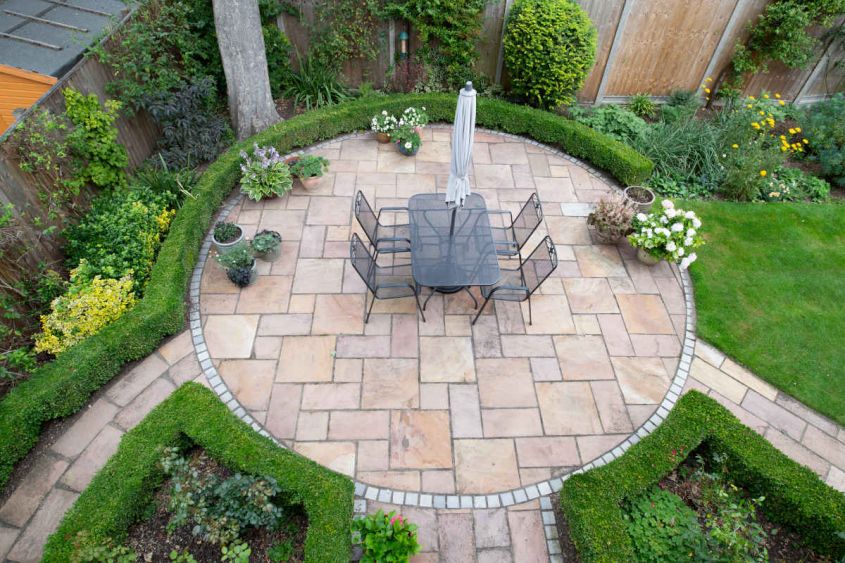THE outdoor floors that we can find on the market differ in the materials they are made of, which in turn are made to make the context in which they are placed functional. For example, assuming that outdoor materials suitable for walkways have characteristics designed to last and be functional in outdoor areas, the choice must be made thinking of their integration with the environment where the floors will be laid. That is, if they will cover the garden, a driveway, a parking lot, the edge of the swimming pool or a terrace. There are beautiful and resistant solutions that can adapt to any environment with a great variety of colors and finishes. Thanks to the wide and varied range of outdoor floors in many materials it is possible to satisfy all tastes, as well as playing with shapes and colors creating original and non-trivial effects. Let’s find out more.
Outdoor stone floors
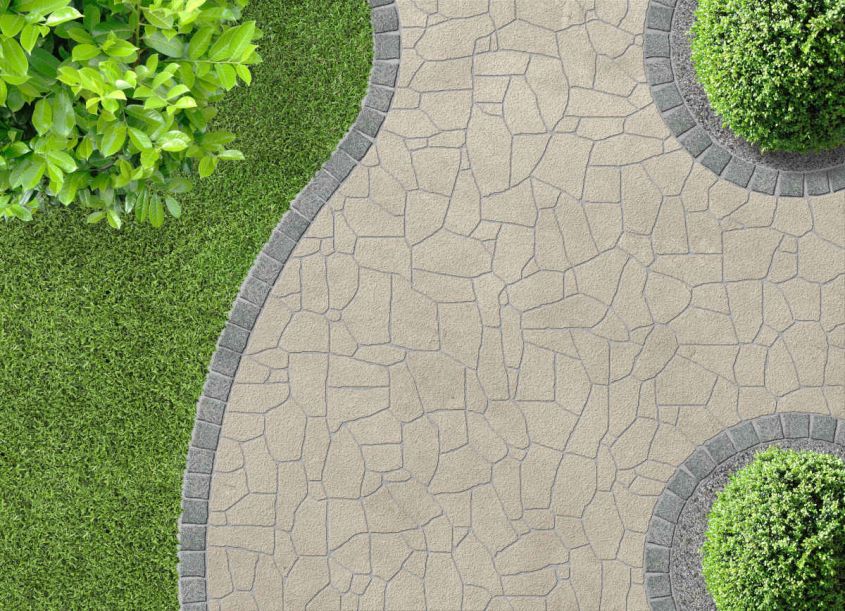 Shutterstock Photo | Wilm Ihlenfeld
Shutterstock Photo | Wilm Ihlenfeld
The stones are very hard materials, used for outdoor flooring because they are particularly resistant to atmospheric agents. Among the most common Italian stones are beole, Istrian stone, Trani stone, travertine, quartz and pietra serena. The most demanding also use the granite, which is a hard and compact rock, resistant to frost, thermal changes and light, while marble, which is less resistant, is less common for flooring in outdoor environments. The natural stone flooring they fit perfectly in rustic contexts and can be used both for paving portions of the garden, driveways to the house, but also terraces and balconies.
Cheap outdoor flooring

Economic solutions that combine practicality and beauty can be outdoor floors in porcelain stoneware. Porcelain stoneware is a solid and very resistant material, ideal for outdoor environments and with more affordable prices than other materials. It also offers a very wide range of finishes so it is easily adaptable to any context. It is perfect for paving balconies, terraces, gardens, gazebo, patio, poolside and any type of outdoor area.
Outdoor concrete floors
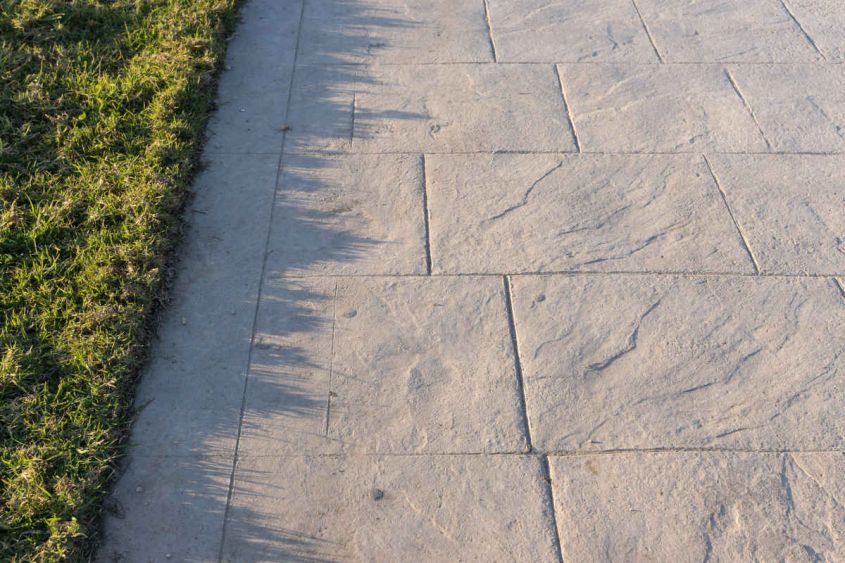 Shutterstock Photo | Wilm Ihlenfeld
Shutterstock Photo | Wilm Ihlenfeld
THE outdoor concrete floors they are very hard products, with a high resistance to loads. With reinforcement reinforcement, concrete floors are also used very effectively for parking lots or driveways. Today i concrete floors they are also widely used for interiors, because they have excellent walking characteristics and a great many aesthetic effects of great value by applying polyurethane waxes or paints. With different techniques it is in fact possible to make concrete floors resemble other materials, such as stone, terracotta or wood. A curiosity: some tiles for outdoor flooring are made with “concrete eats smog“, Which eliminates polluted agents and improves air quality.
Pvc outdoor floors
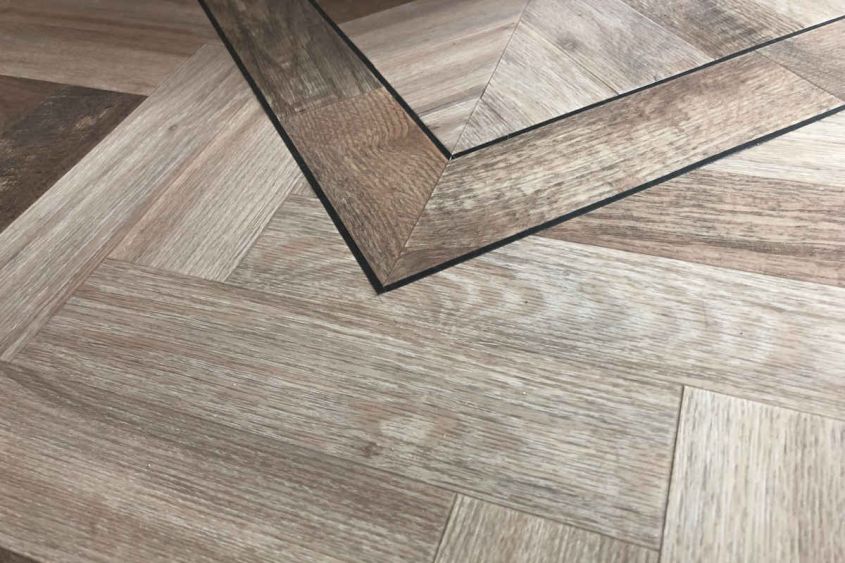 Shutterstock Photo | Luckeyman
Shutterstock Photo | Luckeyman
In addition to resin, among other materials suitable for paving exteriors is PVC. Exist plastic outdoor tiles with which it is possible to create a floor in a simple way thanks to self-locking interlocking modules. THE pvc plastic flooring for exteriors they are flexible and draining, and are also ideal for DIY lovers.
Outdoor wooden floor

The wood it is not generally used for outdoor flooring because it is very affected by humidity, but there are essences that are an exception, such as teak and other exotic woods. These varieties have the power to resist water because they are by their nature impregnated with resins that make them water repellent, and therefore become suitable as outdoor wood flooring.
Floors for outdoor terraces

Any material mentioned so far can be used for i floors of terraces and balconies since it meets the necessary characteristics: resistance, impermeability, durability. Wood is an ever-present trend, but it must be treated properly to make it last a long time. Then there are tiles or porcelain stoneware, the latter, as mentioned, also available in the wood-effect version. For outdoor terraces, synthetic materials such as plastic or glass composites and other innovative materials can also be used.
Outdoor ceramic floors
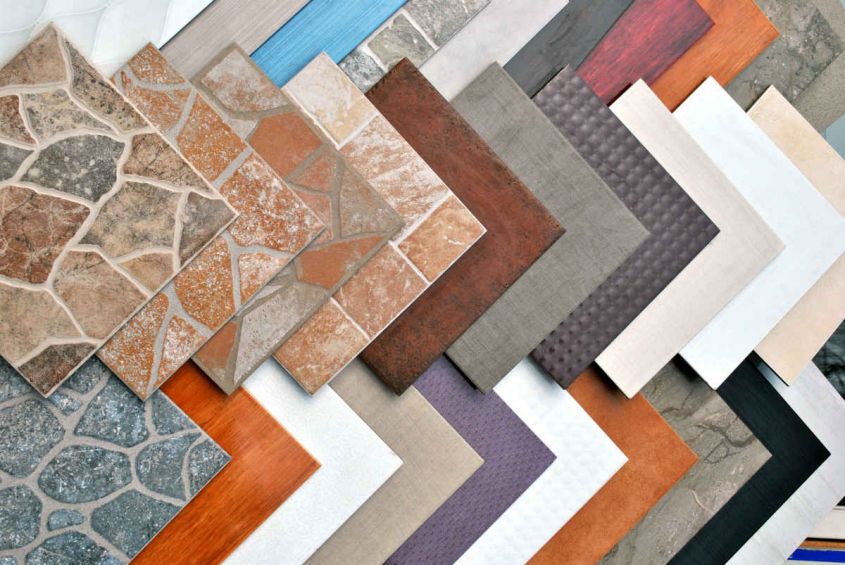 Shutterstock Photo | Stayman
Shutterstock Photo | Stayman
The ceramic tiles they can be a excellent product for outdoor floors, as long as they are anti-freeze. They have the same hardness and consistency as stones, but their surface and support must be compact and non-porous to prevent infiltrating water from freezing and causing them to break.
It might also interest you


